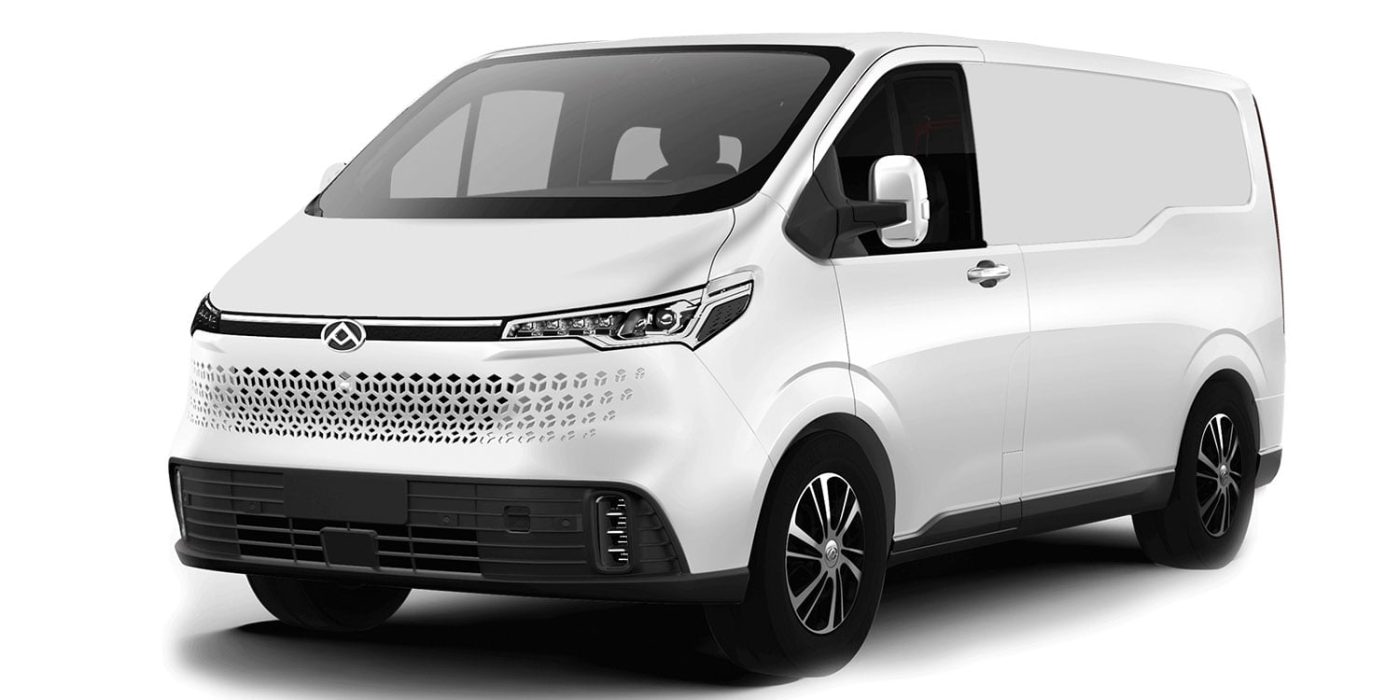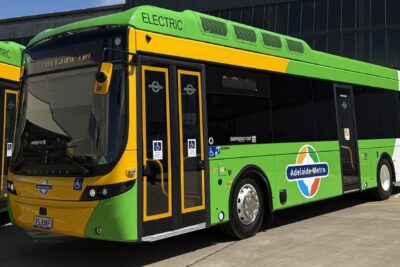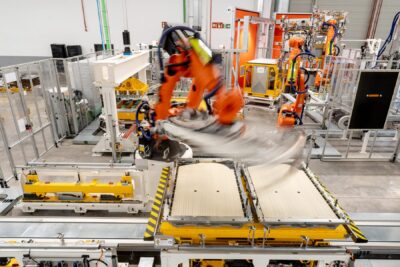Maxus presents 3rd electric transporter, the eDeliver 7
The eDeliver 7 will compete in the 3.5-tonne class and is positioned exactly between the two existing electric vans. According to media reports, the vehicle is the first representative of a completely new platform, but several core components of the drive system definitely overlap with the eDeliver 9.
Maxus plans to publish the prices for the newcomer in June and open the order books in August. The first deliveries in the UK are planned for December 2023. Whether the eDeliver 7, like the other two electric Maxus vans, will also be offered in continental Europe is not yet known. Prices have also not yet been announced and are expected to be revealed in June. It is considered highly likely that the price will also land between the eDeliver 3 (£30,000) and the eDeliver 9 (£63,000).
What is public is all the technical data, at least for the British market. There will be two battery options for the eDeliver 7 with 77 and 88 kWh usable capacity. This should allow up to 315 kilometres, according to WLTP. For comparison: the slightly larger eDeliver 9 offers battery packs with 52 kWh, 72 kWh and 88.5 kWh, while the smaller eDeliver 3 has a 50 kWh battery on board. So the eDeliver 9 and eDeliver 7 are likely to share the large battery.
For the electric motor, the eDeliver 7 also uses the existing engine from the eDeliver 9. According to the Maxus data sheet, it has a maximum output of 150 kW and 330 Nm. The top speed is 120 km/h.
At the charging station, the eDeliver 7 needs eight hours with an 11 kW on-board charger to charge the smaller battery from 5 to 100 per cent, according to the manufacturer. At DC units, the delivery EV can charge at 90 kW. It is said to take 43 minutes to go from 20 to 80 per cent charge. There is no information yet on the charging performance with the larger battery.
The smallest version, the L1H1, is 4,998 mm long, 2,030 mm wide and 1,990 mm high. The wheelbase is an even 3 metres, and the load volume is 5.9 cubic metres. The L2H1 version grows to 5,364 in length – and the load volume in this case to 6.7 cubic metres. The L2H2 version has an additional height of 2,390 mm, which raises the load volume to 8.7 cubic metres. The larger eDeliver 9 has a maximum capacity of 12.5 cubic metres.
Important, of course, for anyone who needs to transport something: The payload limit of the eDeliver 7 is 1,200 kilograms for the entry-level L1H1 model and drops to 1,025 kg for the L2H2 model with the larger 88-kWh battery pack. Towing capacity is 1,500 kilograms braked and 750 kilograms unbraked.
According to British media reports, Mark Barrett, director of Maxus, has already announced another e-transporter at the presentation of the eDeliver 7, which will be positioned between the eDeliver 3 and the eDeliver 7. In terms of naming, the company is apparently staying true to the odd numbers. The new model is to be called eDeliver 5 and will be “a crossover between the two models mentioned”. According to Barrett, the launch should take place in the next one and a half years.
Update 01 February 2024
Maxus has opened UK orders for its new eDeliver 7 medium electric van. Prices start at £44,995, excluding VAT, and the first deliveries are expected at the end of March.
The eDeliver 7 is available with a 77kWh or 88kWh battery, with the latter providing a WLTP range of up to 230 miles. The electric transporter van can be specified in three size configurations, with a payload of up to 1200 kg.
parkers.co.uk, professionalvan.com, fleet.ie, saicmaxus.co.uk, saicmaxus.com, whatvan.co.uk, fleetnews.co.uk (last three update)





0 Comments